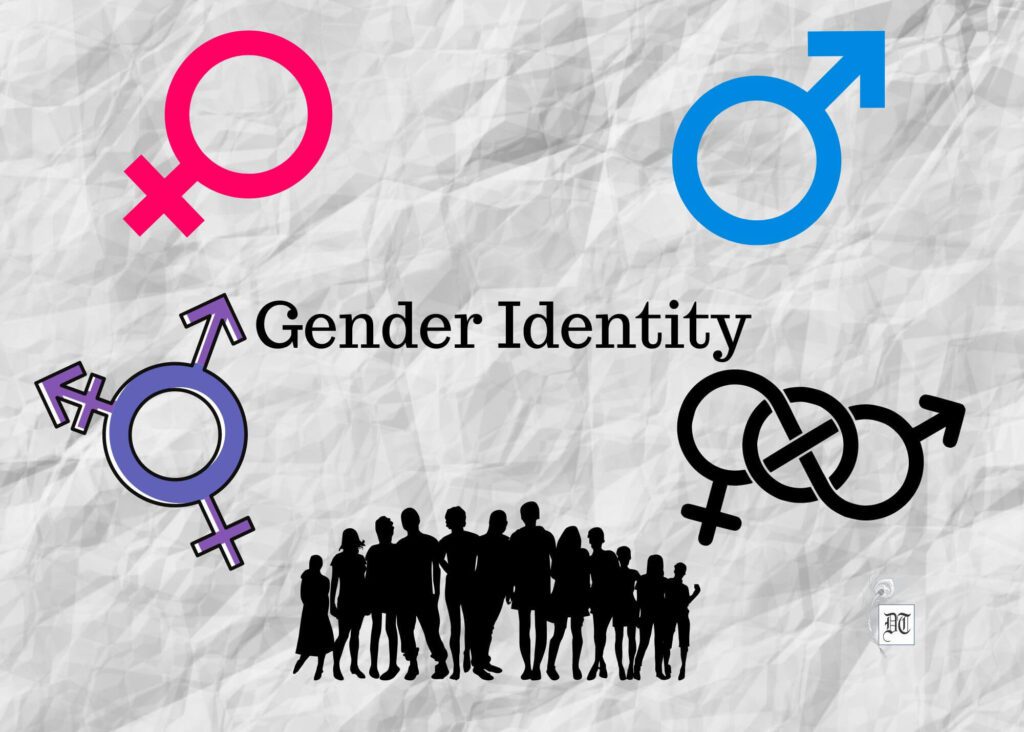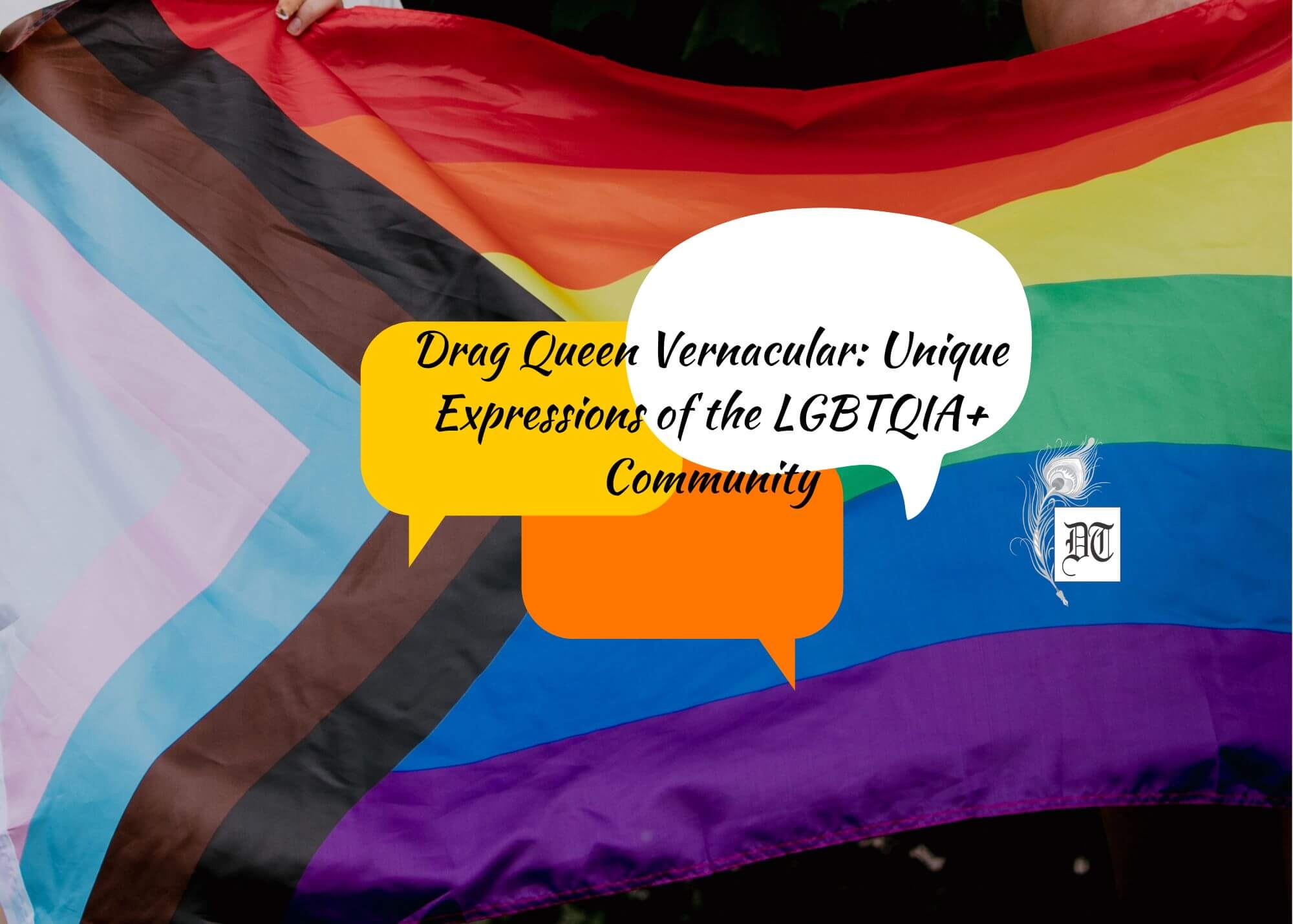Reading Time: 3 minutes
Shaivya explores the complex relationship between language, identity, and self-expression for lesbian, gay, bisexual, transgender, and queer (LGBTQIA+) individuals, exclusively for Different Truths.

Language is more than just a tool for communication for humans. It shapes our understanding of the world and reflects individuality. For those who identify themselves as lesbian, gay, bisexual, transgender, or any other heteronormative category (LGBTQIA+); language plays a crucial role in expressing their authentic selves. Throughout history, derogatory terms have been used to marginalize LGBTQIA+ people and their communities. However, some community members have embraced the language and the terms, transforming them into symbols of empowerment and solidarity. Terms like ‘queer’, ‘dyke’, and ‘fag’ have been repurposed as badges of pride, challenging the stigma associated with them and asserting ownership over their identities.
… queer individuals have to navigate through the complex web of language, identity, and expression.
The societal attitude towards the LGBTQIA+ community has seen a significant change in recent times, resulting in increased visibility and acceptance. With this progress, queer individuals have to navigate through the complex web of language, identity, and expression. From embracing fluid identities to reclaiming slurs, the linguistic landscape of Queer communication remains diverse and dynamic. However, the reclaimed language is not universally embraced within the community. For some, these terms evoke painful memories of discrimination and trauma, rendering the use of such terms deeply hurtful. This highlights the complexity of the language within the queer community.
The terms used to describe the LGBTQIA+ community and its members carry huge significance for them. This linguistics area demands sensitivity, empathy, and a genuine willingness to respect and listen to individual experiences, as things that empower one may trigger another. For the individuals who are exploring their identity within the queer spectrum, finding the appropriate term for them, be it gay, lesbian, pansexual, or non-binary, is an important aspect of their self-discovery. These labels are not just identifiers, they offer visibility and recognition, connecting like-minded peers who share similar experiences. However, these labels can at times be restrictive and may fail to capture the complete spectrum of their gender identity and human sexuality.
Inclusive linguistic practices signal a commitment to fostering an understanding and accepting environment.
Inclusive linguistic practices signal a commitment to fostering an understanding and accepting environment. The use of pronouns for the community goes beyond grammatical conventions. It offers a means to validate and respect diverse gender expressions; it is a fundamental affirmation of their identity. Queer language, slang, jargon, and shared expression related to the LGBTQIA+ community create a bond of solidarity among the individuals of the community. Whether it is the intricacies of drag queen vernacular or nuanced phrases in queer spaces, these linguistic practices strengthen their connection. These linguistic codes and expressions reinforce a sense of belonging and mutual support within the community. Many queer artists, writers, and poets have played a pivotal role in shaping LGBTQIA+ discourse. James Baldwin’s essays and Audre Lorde’s poetry have played a pivotal role in broadening the community’s language scope. Their work has added depth to the understanding of love, desire, and identity by expanding linguistic boundaries.
Language is a tool for self-expression, empowerment, and unity for those who use it judiciously. With the strategic use of certain terminologies, inclusive pronouns, and reclaimed expressions, queer individuals challenge societal norms, assert themselves, and create connections beyond the linguistic confines. This highlights the lasting impact of language as a force for social advancement and collective liberation. Every word used for them carries weight for a queer individual. It shows their resilience, creativity, and unwavering commitment to authenticity.
…individuals belonging to the LGBTQIA+ community have reclaimed the language as a tool for their empowerment.
The experiences of queer individuals, as they navigate through language, identity, and self-expression, serve as proof of their strength and authenticity. Despite being marginalised and discriminated against since the beginning of history, individuals belonging to the LGBTQIA+ community have reclaimed the language as a tool for their empowerment. Terms once used to oppress and demean have now been transformed into a symbol of pride and defiance. It is a tool to assert their identity, challenge social norms, and foster connections that transcend linguistic boundaries.
Reference:
1. Cameron, D. (2000). “Good to talk?” Living and working in a communication culture. Sage Publications.
2. Lorde, A. (2007). The Collected Poems of Audre Lorde. W. W. Norton & Company.
3. Baldwin, J. (1998). James Baldwin: Collected Essays (Library of America). Library of America.
Picture design by Anumita Roy














